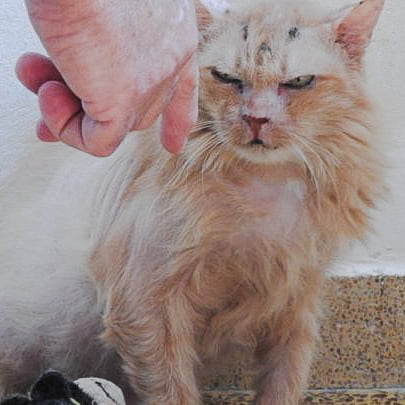Yes, normally a domestic cat’s meow will change with age. We can expect it because anatomically speaking the domestic cat is very similar to humans and we know that the human voice changes in old age. I am of the firm belief that the same changes and the same reasons apply to domestic cats.

The reason will be that our muscles change as we get older and they lose mass and strength. This includes the muscles of the vocal cords and the voice box (larynx). Presbylaryngis is vocal fold atrophy.
I’m quite old myself and I can feel my voice changing. It’s becoming more horse and slightly dead sounding. That’s a bad choice of words 😎. They say that age-related changes to the voice may also be related to changes in the mucus glands and hormones.
RELATED: please see the links to more articles on cat sounds at the base of this page.
If you asked, let’s say, 100 observant cat owners whether their cat’s voice had changed in old age you would probably receive a positive response in at least 80% of them. For example, Rachel Fefer on the Quora.com website has lived with a number of cats that reached 15-20 years of age. She said that most of them had some change to their vocalisations as they reached a senior age. There meows became a bit hoarse and not as strong as before. This is very reflective of human vocalisations in old age.
Another piece of anecdotal evidence comes from Ann Daley on the same site, writing on March 1, 2019. She said: “Yes, my elderly cat’s meow has become louder and horse sounding especially if she realises she is in a room alone and wants to know where we are.”
Her elderly cat is blind and her call is like a howl. This is another old-age problem. Her cat is probably more anxious because she may suffer from early-stage dementia. The call becomes more purposeful and a bit more panicky hence the howl.

And also, the playwright and actor, Gloria Rosen said that she lived with a very vocal Siamese for almost 20 years. His name was Leo and in his old age his loud meow became a silent one. That’s interesting. Some adult cats do meow silently all their lives. But the silent meow in old age indicates the inability to summon the effort to create the sound. And this goes back once again to muscular atrophy in general across the entire body in advanced aged.
I welcome comments from anybody living with an elderly cat on this topic.

